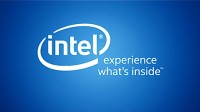Semiconductor giant Intel has reached a tentative agreement with Taiwan’s TSMC and some U.S. firms to create a joint venture that would assume operating responsibility for Intel’s chip fabrication plants here. TSMC will reportedly hold a 20 percent stake in the JV, while Intel and the other investors would control the remaining 80 percent. This specific JV is limited to Intel’s foundry unit, which posted a 2024 operating loss of $13.4 billion in 2024 and is not expected to break even until 2027. New Intel CEO Lip-Bu Tan said at last week’s Intel Vision conference that he will spin off all non-core units.
U.S. companies AMD, Broadcom, Nvidia and Qualcomm were mentioned as possible participants in the deal, according to SiliconANGLE.

“At this stage it’s not clear how involved TSMC will be with Intel’s U.S. chip fabs,” which are “set up to manufacture chips based on Intel’s designs only,” writes SiliconANGLE. “It’s possible that, under the terms of the deal, TSMC may share some of its chip manufacturing methods with Intel and train its employees on how to implement them. Intel’s factories may even be refitted with new equipment so they can be used to make processors based on TSMC’s methodologies.”
Intel currently operates foundries at four U.S. locations (in Arizona, New Mexico, Ohio and Oregon) and is modernizing some using funds obtained through a $7.86 billion award under the Biden administration’s U.S. CHIPS and Science Act.
Intel says it has always planned to spin off its foundry operations, re-stating as much in its January earnings report. But SiliconANGLE reports that the U.S. government had been applying pressure to speed up a deal, “with the Department of Commerce said to be especially concerned about Intel’s struggles.”

Intel’s problems stem from missing out on the industry’s move to GPUs to drive artificial intelligence as opposed to Intel’s traditional CPUs, as well as the growing dominance of mobile-friendly chips based on the ARM framework, a trend Intel was late to jump on.
“The White House reportedly sees the partnership as a way to stabilize Intel, whose domestic chipmaking capabilities are seen as being essential to U.S. national security, despite the challenges faced by the company,” SiliconANGLE writes.
“Intel laid off 15 percent of its workforce last year in an attempt to reduce costs and save over $10 billion by 2025” reports Tom’s Guide, which suggests the TSMC deal “could transform Intel forever” by sharing proprietary chipmaking methods.
Tan — a technology investor who served on the Intel board and led a turnaround as CEO of Cadence Design Systems from 2009 to 2021 — was named Intel CEO this month, replacing Pat Gelsinger, who exited in December.
Tan indicated at his Vision speech in Las Vegas last week that while he wants to spin off non-core assets he is disinclined to divest of Intel’s “key product and manufacturing operations,” according to Bloomberg coverage.
Related:
Intel, TSMC Recently Discussed Agreement to Form Chipmaking Joint Venture, The Information, 4/3/25
Apple’s MacBooks Don’t Need Intel, but Intel Might Need Apple’s Chipmaker, PhoneArena, 4/4/25

No Comments Yet
You can be the first to comment!
Leave a comment
You must be logged in to post a comment.